Samsung Galaxy S21 Ultra vs. Galaxy Note 20 Ultra: Which is right for you?
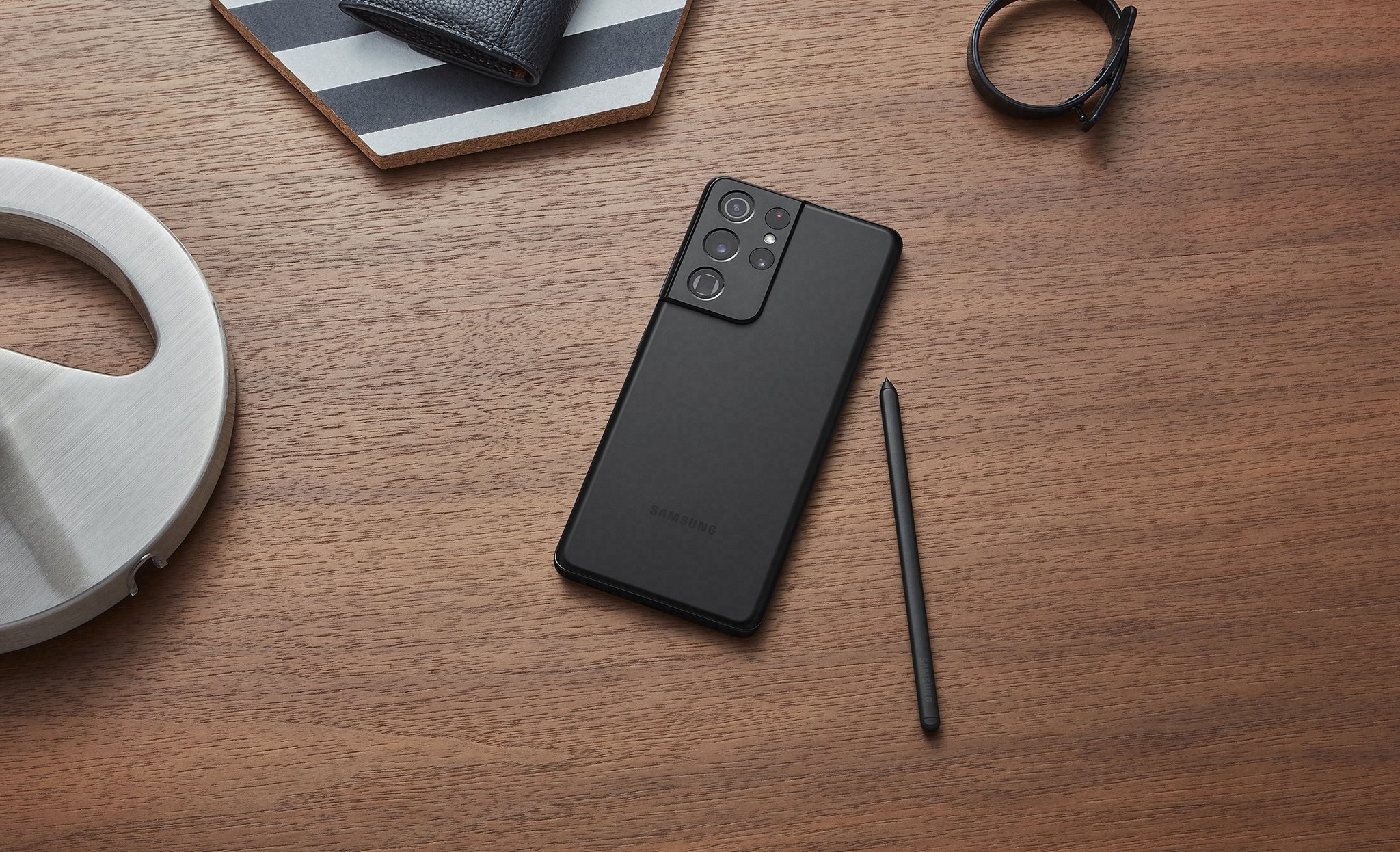
Galaxy S21 Ultra
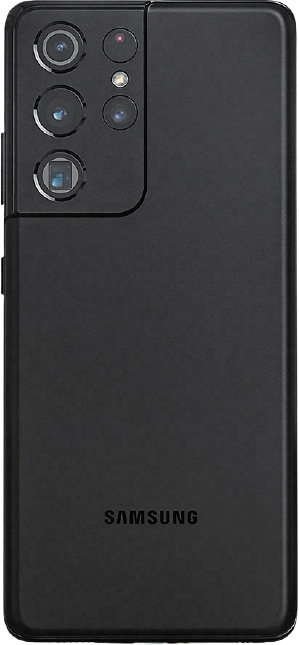
The Galaxy S21 Ultra cranks things up to 11. It's faster than its predecessor, has better battery life, and you get a new AMOLED panel with dynamic refresh rate that goes from 11Hz to 120Hz. Combine that with quad cameras at the back, Android 11 out of the box, and compatibility with the S Pen stylus, and you have a stunning overall package.
Galaxy S21 Ultra
Latest and greatest
Galaxy Note 20 Ultra
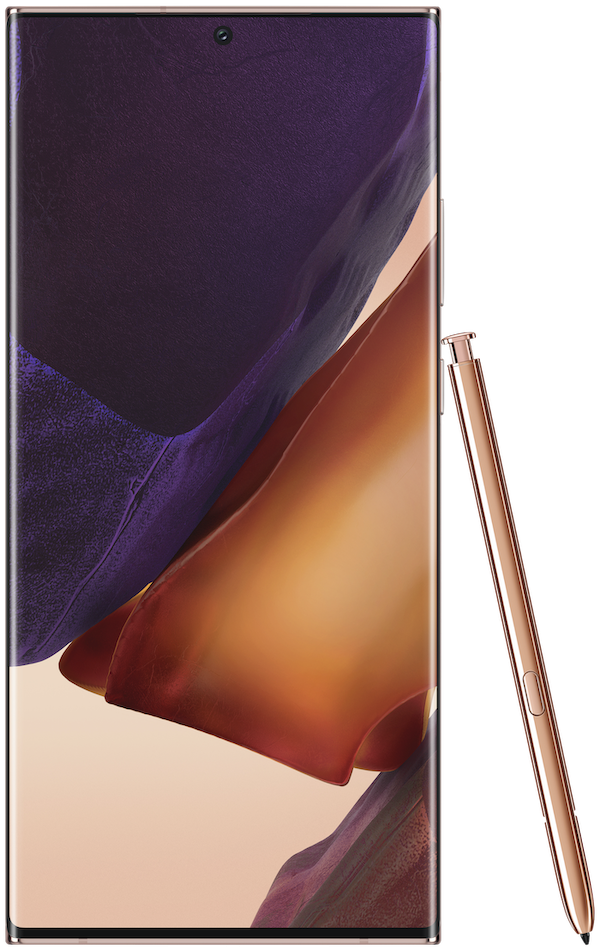
The Galaxy Note 20 Ultra ticks all the right boxes: The design is gorgeous, the AMOLED panel is still one of the best around, and it has more power than you'll need. Sure, it misses out on some of the next-gen features that are debuting on the S21 series, but it still holds up just fine in 2021.
Galaxy Note 20 Ultra
Still going strong
Despite being last year's model, Galaxy Note 20 Ultra still holds up just fine in 2021, but it is missing out in a few areas when compared to the flagship of the Galaxy S21 series, the S21 Ultra. That isn't to say that the Note 20 Ultra doesn't have its own unique features. If you're looking to buy a flagship in 2021, here's how the two phones measure up.
Galaxy S21 Ultra vs. Galaxy Note 20 Ultra The next-gen upgrade is here
The S21 Ultra has the potential to be among the best Android phones in 2021. It's clear that Samsung has reserved its latest innovations for the device, and in doing so created what is possibly the most powerful flagship we'll see this year.
The S21 Ultra is packed with new innovations, giving it an edge over its Note sibling.
Let's start with the hardware: The S21 Ultra is one of the first phones to be powered by Qualcomm's beastly new Snapdragon 888 chipset. The flagship chipset features the new Cortex X1 core and brings significant performance gains over the Snapdragon 865 that powered last year's S20 series.
Then there's the display. Samsung continues to push the boundaries in this area year after year, with the S21 Ultra featuring a 6.8-inch Dynamic AMOLED panel with QHD+ resolution. The big deal with the screen is that it has dynamic refresh rate technology that allows it to scale from 11Hz all the way up to 120Hz. Just be sure you keep it safe with a great screen protector and one of the best Galaxy S21 Ultra cases! Now, the Galaxy Note 20 Ultra also has a 120Hz AMOLED screen, but it misses out on dynamic scaling.
However, the biggest addition this year is the S Pen. While the stylus isn't bundled with the phone itself, you'll be able to pick it up additionally and use it with Samsung's 2021 flagship. That means the stylus is no longer exclusive to the Note series, so if you're a fan of Samsung's stylus, you'll want to take a look at the S21 UItra.
Be an expert in 5 minutes
Get the latest news from Android Central, your trusted companion in the world of Android
Samsung also refreshed its design, and the result is that the S21 Ultra stands out against its predecessors. There are similarities in the overall aesthetic, but the new camera housing is quite striking. But when it comes to the design, the Note 20 Ultra has a clear edge thanks to its gorgeous Mystic Bronze color option.
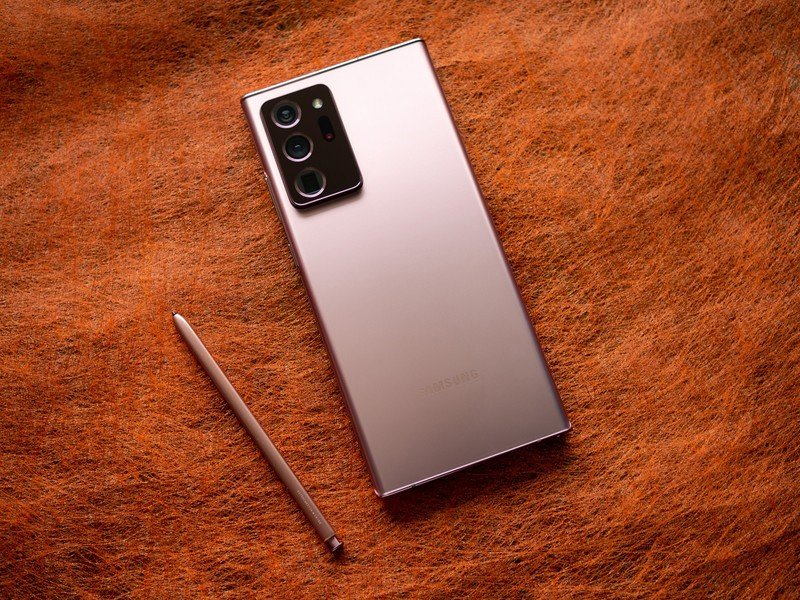
I did not like the Note 20 Ultra when I got started with it nearly six months ago, but I ended up using the phone more than any other device in 2020. I used most flagships released in the last 12 months, but went back to the Note 20 Ultra after all the reviews because of that massive 6.9-inch screen and powerful hardware.
The Galaxy Note 20 Ultra has plenty to offer, but the S21 Ultra takes things to the next level.
The phone picked up the One UI 3.0 update at the end of December, and the switch to Android 11 puts it on par with the S21 Ultra in terms of the software. Of course, the S21 Ultra is launching with Android 11 out of the box, so it will receive one additional Android version update.
Both devices will get three guaranteed Android updates and three years of security patches, and with One UI 3.0, Samsung has a user interface that's one of the best you'll find on Android.
The regular Galaxy S21 models come with 8GB of RAM as standard, but the S21 Ultra features 12GB of RAM out of the box on all versions. That's the case with the Note 20 Ultra as well, with the phone packing 12GB of RAM and available in three storage versions: 128GB, 256GB, and 512GB.
Samsung is also offering the S21 Ultra in these same storage sizes, but the 512GB edition will feature an insane 16GB of RAM — just like last year's S20 Ultra. Whether you actually need that much RAM is the more relevant question, but at least you shouldn't see any issues with multitasking.
The lack of a microSD card on the S10 Ultra is a divisive move.
As for the rest of the hardware, the Note 20 Ultra has everything you care about: IP68 dust and water resistance, 15W wireless charging as well as reverse wireless charging, and 25W wired charging. The S21 Ultra also has these features, and it picks up Wi-Fi 6E connectivity (the Note 20 has Wi-Fi 6) as well as ultra wideband.
While the S21 Ultra has all the hardware you could ask for, it is missing one core feature that has been a mainstay on Samsung phones: a microSD card. You won't find the slot on any of the devices in the S21 series, so if you need this particular feature you will need to pick up the Note 20.
Galaxy S21 Ultra vs. Galaxy Note 20 Ultra: Here are the specs
| Category | Samsung Galaxy S21 Ultra | Samsung Galaxy Note 20 Ultra |
|---|---|---|
| Operating system | Android 11One UI 3.0 | Android 11One UI 3.0 |
| Display | 6.8-inch 120Hz Dynamic AMOLED3088x1440 (20:9)HDR10+Gorilla Glass Victus | 6.9-inch 120Hz Dynamic AMOLED3088x1440 (20:9)HDR10+Gorilla Glass Victus |
| Chipset | Snapdragon 8881 x 2.84GHz X13 x 2.42GHz A784 x 1.80GHz A555nm | Snapdragon 865+1 x 3.0GHz A773 x 2.42GHz A774 x 1.80GHz A557nm |
| GPU | Adreno 660 | Adreno 650 |
| RAM | 12GB/16GB LPDDR5 | 12GB LPDDR5 |
| Storage | 128GB/256GB/512GB UFS3.1 | 128GB/256GB/512GB UFS3.1 |
| microSD slot | No | Yes |
| Rear camera 1 | 108MP f/1.8, OIS8K at 30fps4K at 60fps | 108MP f/1.8, OIS8K at 24fps4K at 60fps |
| Rear camera 2 | 10MP, f/3.0telephoto, OIS5x optical zoom | 12MP, f/3.0telephoto, OIS5x optical zoom |
| Rear camera 3 | 12MP, f/2.2wide-angle | 12MP, f/2.2wide-angle |
| Rear camera 4 | 10MP, f/2.2telephoto | No |
| Front camera | 40MPauto focus | 10MP f/1.7auto focus |
| Connectivity | 5G, Wi-Fi 6E MU-MIMOBluetooth 5.1 LE, NFC, GPS | 5G, Wi-Fi 6 MU-MIMOBluetooth 5.0 LE, NFC, GPS |
| Audio | USB-CStereo speakers | USB-CStereo speakers |
| Battery | 5,000mAhNon-removable | 4,500mAhNon-removable |
| Charging | USB-C PD3.0Fast charge (25W) | USB-C PD3.0Fast charge (25W) |
| Water resistance | IP68 | IP68 |
| Security | In-display fingerprint sensorFace unlock | In-display fingerprint sensorFace unlock |
| Dimensions | 165.1 x 75.6 x 8.9mm228g | 164.8 x 77.2 x 8.1mm208g |
| Colors | Phantom Black | Mystic Bronze, Mystic Black, Mystic White |
Galaxy S21 Ultra vs. Galaxy Note 20 Ultra: Two fantastic flagships
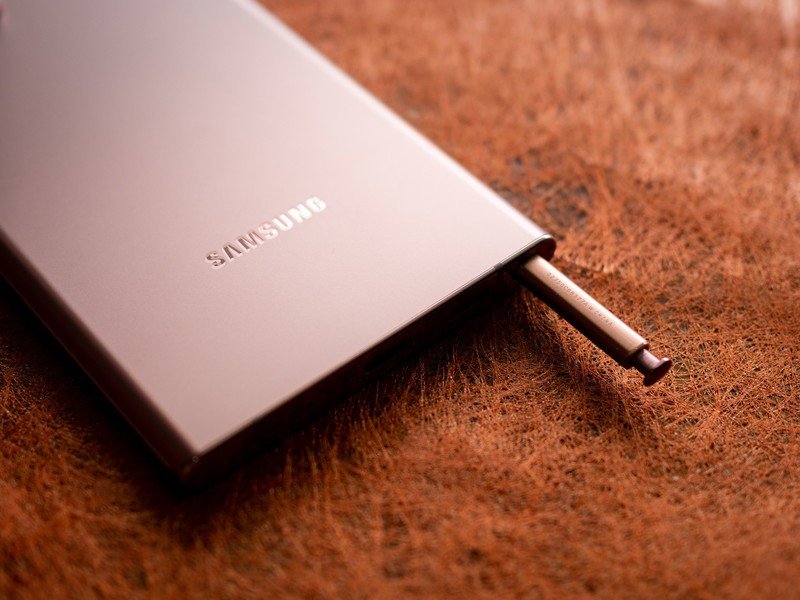
With the Galaxy S21 Ultra, Samsung is once again setting the standard for Android flagships. The phone is packed with the latest hardware innovations, and has an exciting new design that allows it to stand out from its predecessors.
The S21 Ultra costs the same as the Note 20 Ultra, making it the ideal option.
Samsung's 2021 flagship has a more powerful chipset that's built on the 5nm node, so it will deliver better energy efficiency. The S21 Ultra also has a larger 5,000mAh battery, and combined with the Snapdragon 888 or Exynos 2100, it should offer much better battery life.
You also get quad cameras at the back — with a second 10MP telephoto lens — and up front Samsung has outfitted the phone with a 40MP selfie camera, a considerable upgrade from the 10MP module that was a mainstay last year. There are a lot of exciting additions here, and it makes the S21 Ultra stand out from the Note 20 Ultra quite a bit.
The only omission in terms of the features is the microSD card slot, with Samsung not offering the feature anymore on its flagships. If you absolutely need to have it, the Note 20 Ultra is a better choice. But if you don't need the microSD slot and are looking for a flagship in 2021, the S21 Ultra is the obvious choice.

The flagship you want
The Galaxy S21 Ultra has all the latest features you're looking for in a flagship. It unlocks a new level of performance thanks to the Snapdragon 888, and it delivers much better battery life. You'll find four cameras at the back, a sublime 120Hz AMOLED panel, and you can even use the S Pen here.
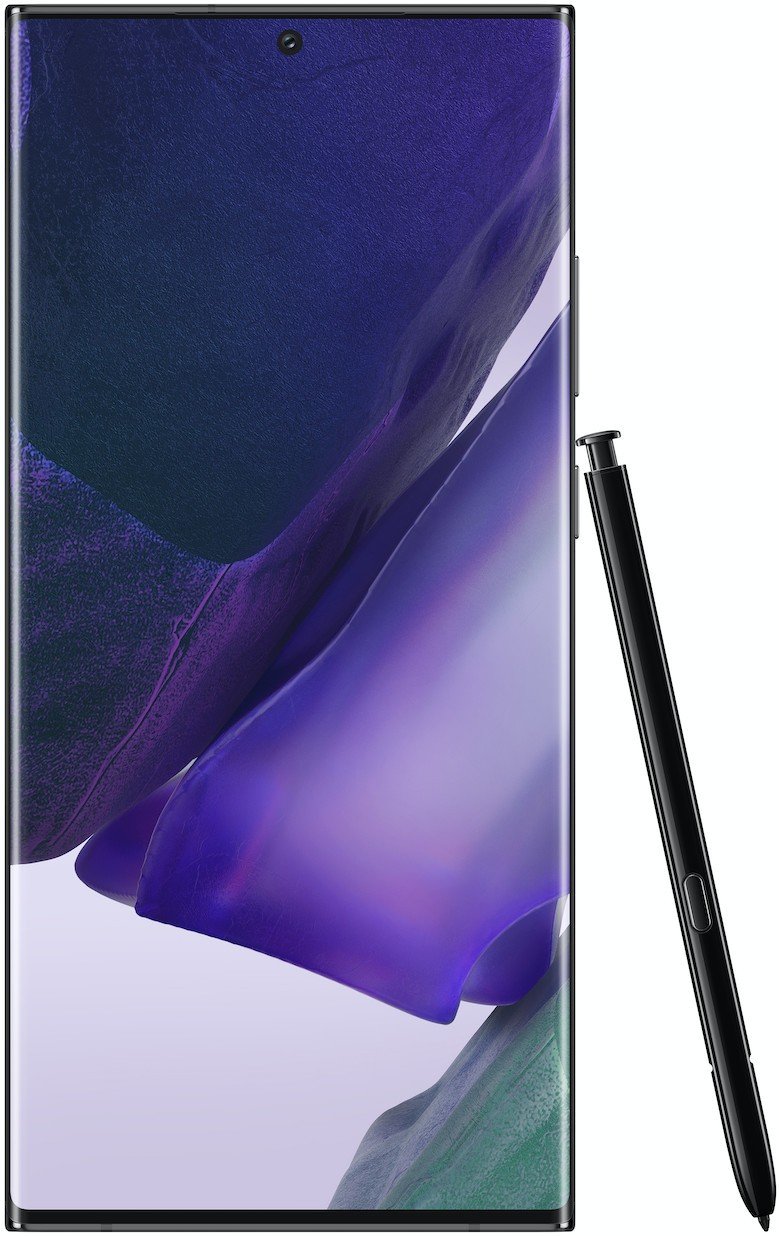
A great option for 2021
The Note 20 Ultra is overshadowed by the S21 Ultra, but the phone itself still has plenty to offer. You're getting some of the most powerful hardware money can buy today, the design is gorgeous, and the cameras are reliable. If you can get a good deal, you shouldn't hesitate to pick up this phone.

Harish Jonnalagadda is Android Central's Senior Editor overseeing mobile coverage. In his current role, he leads the site's coverage of Chinese phone brands, networking products, and AV gear. He has been testing phones for over a decade, and has extensive experience in mobile hardware and the global semiconductor industry. Contact him on Twitter at @chunkynerd.

